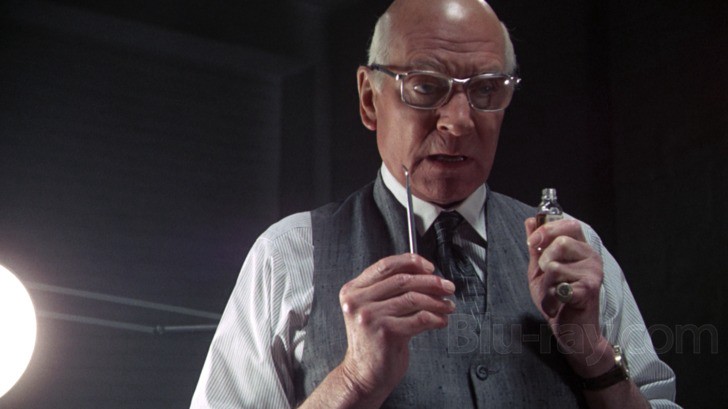Is it safe?

It is easy to think in terms of Whig history, to see progress however hard-won as being a mostly linear process. Because of this, many people think that Obergefell is essentially settled law. This would be a serious mistake — American history that ignores Reconstruction (not to mention that Roe v. Wade is about to be overruled and replaced in many states with legal regimes that will be worse than the pre-Roe status quo on the ground):
Where would that leave the vote tally, if the court were considering Obergefell today? There would be two remaining votes for it, presumptively joined by the newly confirmed Ketanji Brown Jackson. That makes three. There would be two confirmed votes against.
What about the chief justice? In the seven years since Obergefell, as the court has been stacked with enthusiastic new right-wing justices, Supreme Court analysts have embraced the idea that Roberts sees it as his duty to defend the reputation of the institution against the appearance of partisanship. Facing certain moments of crisis—the attempt to throw out the Affordable Care Act, the runaway use of the shadow docket to make unexplained decisions—Roberts has chosen institutional conservatism over partisan conservatism, and sided with the liberals. Would he set aside his former complaints that “the core definition of marriage” excluded same-sex couples or that the Obergefell decision was “indefensible as a matter of constitutional law,” in favor of the principle of stare decisis?
Even if Roberts were to choose to support precedent over his previously announced beliefs, that would bring the number of justices defending marriage equality to four. Who would be a fifth? Amy Coney Barrett, under direct questioning in her confirmation hearing, avoided affirming that Obergefell was properly decided. Brett Kavanaugh did the same. Neil Gorsuch, soon after joining the court, wrote a dissent (supported by Alito and Thomas) when the court ordered Arkansas, under the equality rights established by Obergefell, to recognize same-sex parents on birth certificates.
Maybe Gorsuch, who did write one major decision supporting gay and trans civil rights, would protect Obergefell. Maybe his fellow Trump appointees would balk at doing something so drastic. But it’s not possible, looking at the present court, to name five certain votes to uphold something everyone treats as a settled right.
The Voting Rights Act seemed to be settled, too: a monument to the bipartisan commitment to upholding the gains of the ’60s. With the Roberts Court methodically stripping away its essential provisions, and with Republicans seeing an opportunity to block Democratic voters, it has become impossible to pass a reinforced voting rights bill. Right-wing Democratic senators, bent on protecting the filibuster, agree with Republicans that the whole subject is too divisive to pursue.
Many people assume that Gorsuch is a vote to re-affirm Obergefell because of his vote in Bostock. But that would be unwise. Gorsuch’s actual interest in legal theory means that one every year or three he will write a liberal banger of an opinion you would never get from Alito. But that’s a double-edged sword — when the idiosyncratic elements of a case that caused him to cast a liberal vote aren’t present, he certainly doesn’t care about radical consequences, and the “textualist” issues present in Bostock are absent in Obergefell. (The fact that Kennedy’s opinion was a complete mess that continued his twerpish refusal to clarify the status of sexual orientation under the equal protection clause won’t help.) I’m not saying it’s guaranteed, but I think there are at least four votes to overrule Obergefell and there may very well be six.
Would overruling Obergefell be unpopular? Yes. Would Republican justices have to worry a lot about that with the GOP 2 1/2 years from getting somewhere between 55-63 Senate seats and most swing state legislatures having been gerrymandered to wire Republicans into near-permanent power? Not really. A Court focused on its general popular standing wouldn’t be overruling Roe either. All it needs is the support of most Republicans, and here people like Chris Rufo are laying the groundwork:
People are reviving positions they would have been embarrassed to stake out when Antonin Scalia was still alive on a 5–4 court. Indiana senator Mike Braun, answering a reporter’s questions about the Jackson confirmation, got so caught up arguing against the Supreme Court’s power to restrict state measures that he said it should have upheld the interracial marriage ban in Loving v. Virginia. (A few hours later, Braun said he “misunderstood” the question, despite having methodically answered a follow-up.)
Rights are a moving target, and tolerance extends only as far as intolerance is able to set the limits. The right-wing messaging entrepreneur Chris Rufo has pushed his campaigning from attacks on “Critical Race Theory” to attacks on trans rights to outright gay-baiting, and Republicans have followed his lead. In the span of a few weeks, it’s become mainstream political behavior to call defenders of gay rights “groomers”—on the grounds that if schools acknowledge gay people’s existence, they are recruiting children into gayness, because to be gay is to be a potential pedophile. (Andrew Sullivan, who cheered the backlash against Black people and trans people, was shocked to see Rufo continue doing exactly what he’d been doing all along.)
Rufo’s “centrist” admirers on Substack and in the mainstream press might not like some of the results, but…never open your mouth until you know what the shot is.
